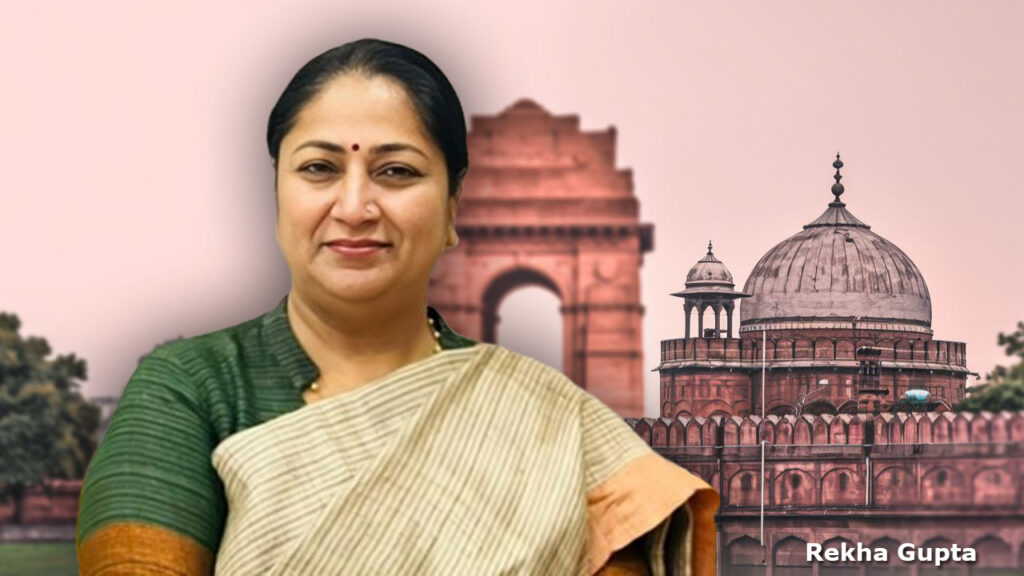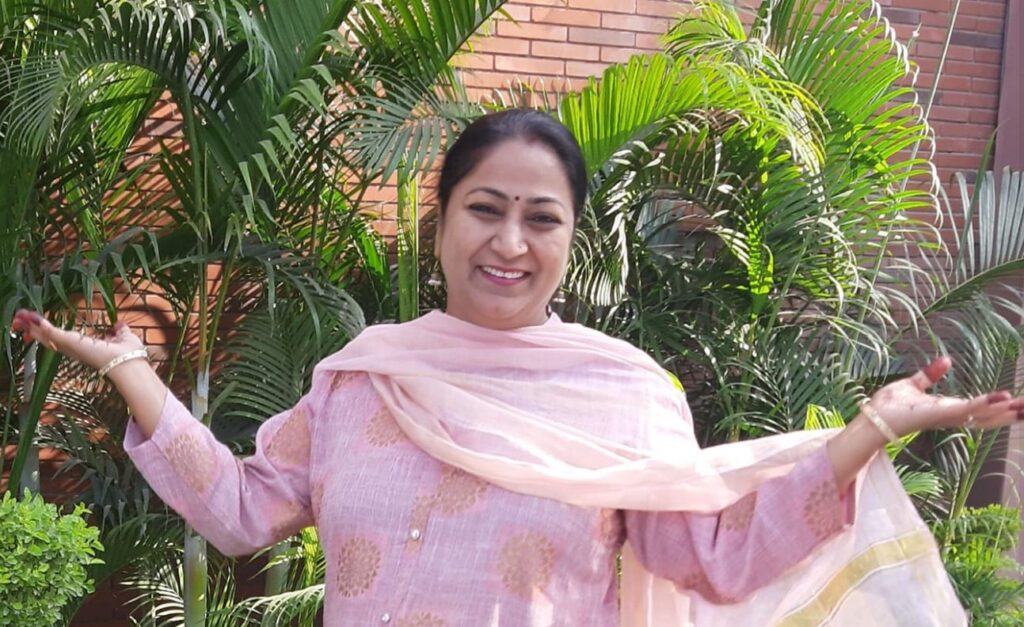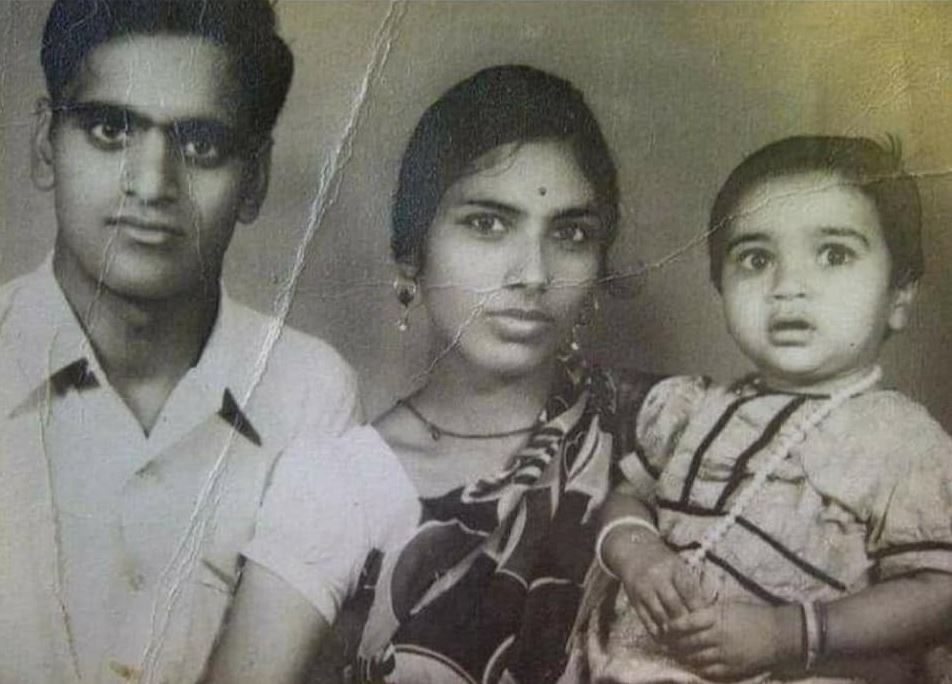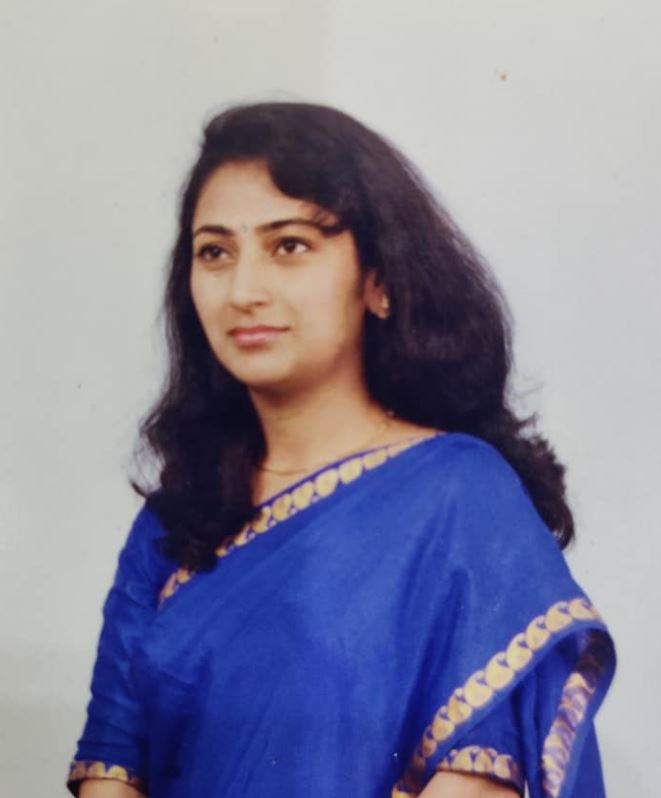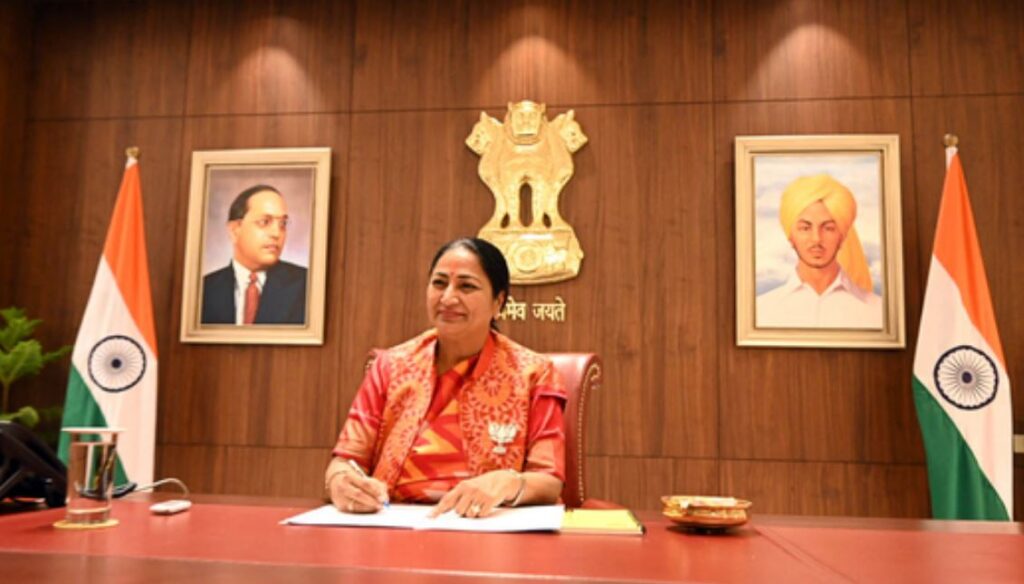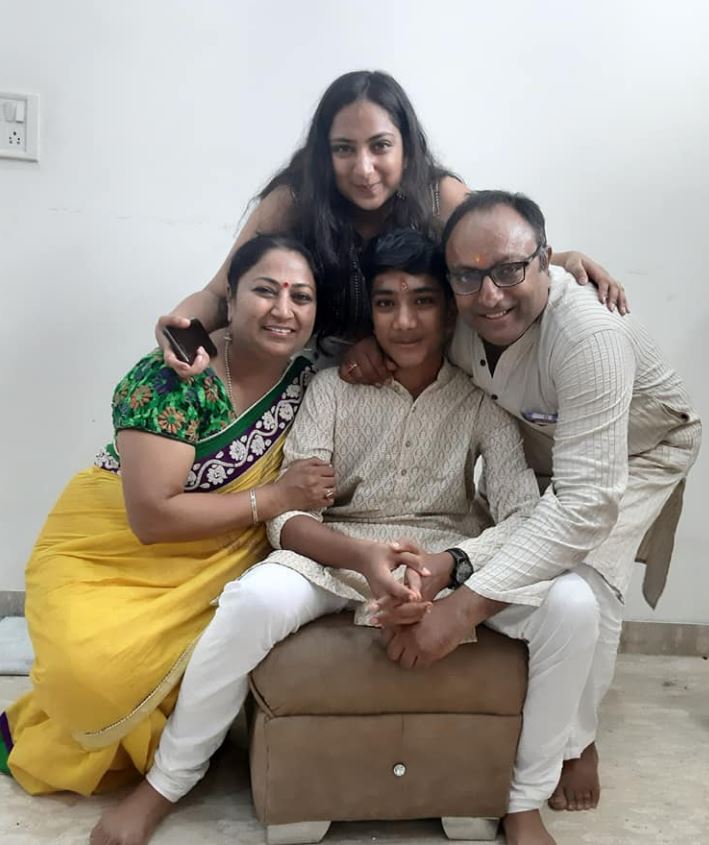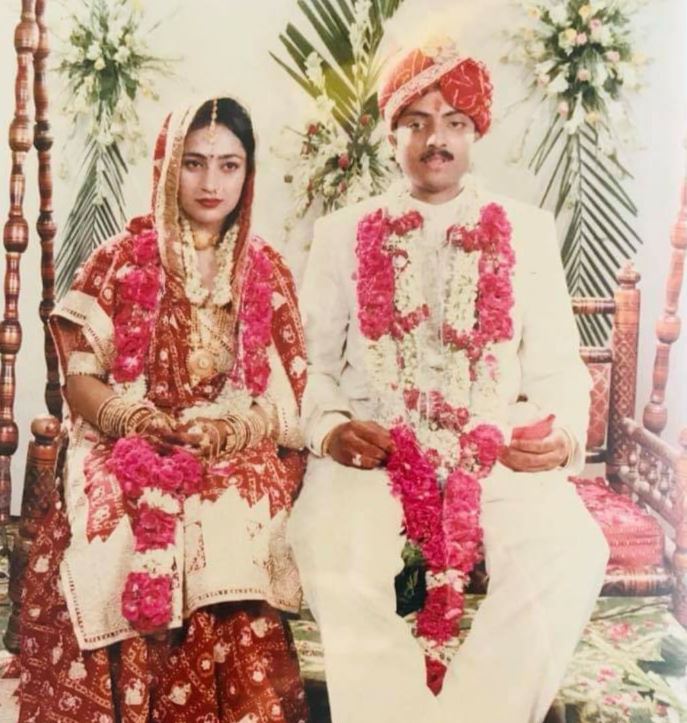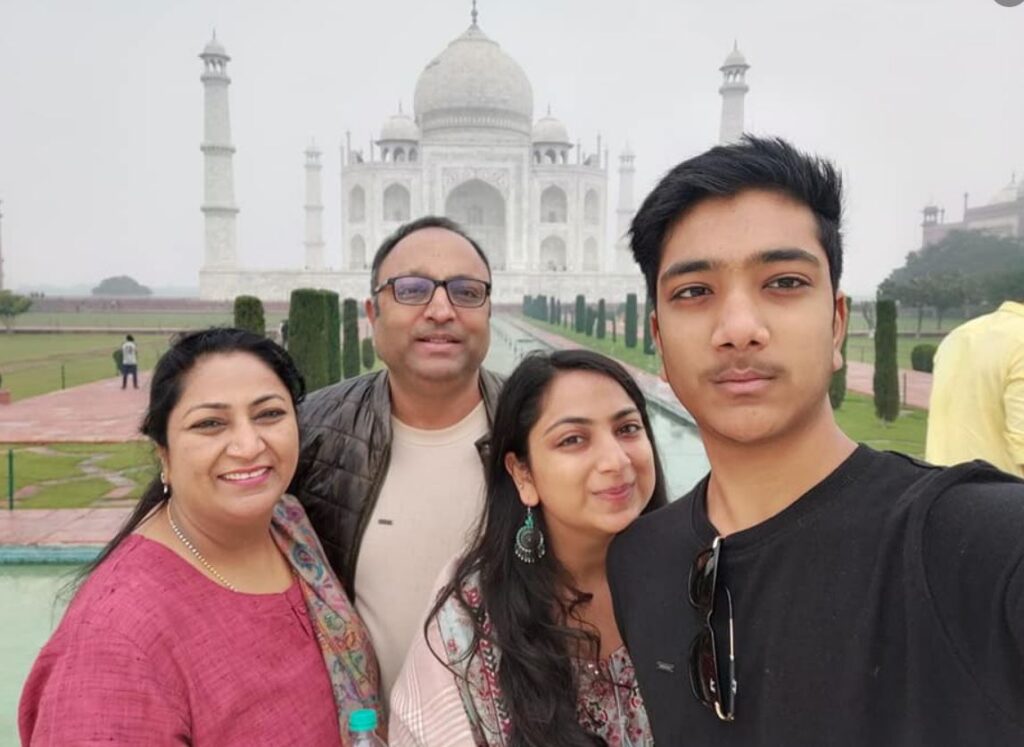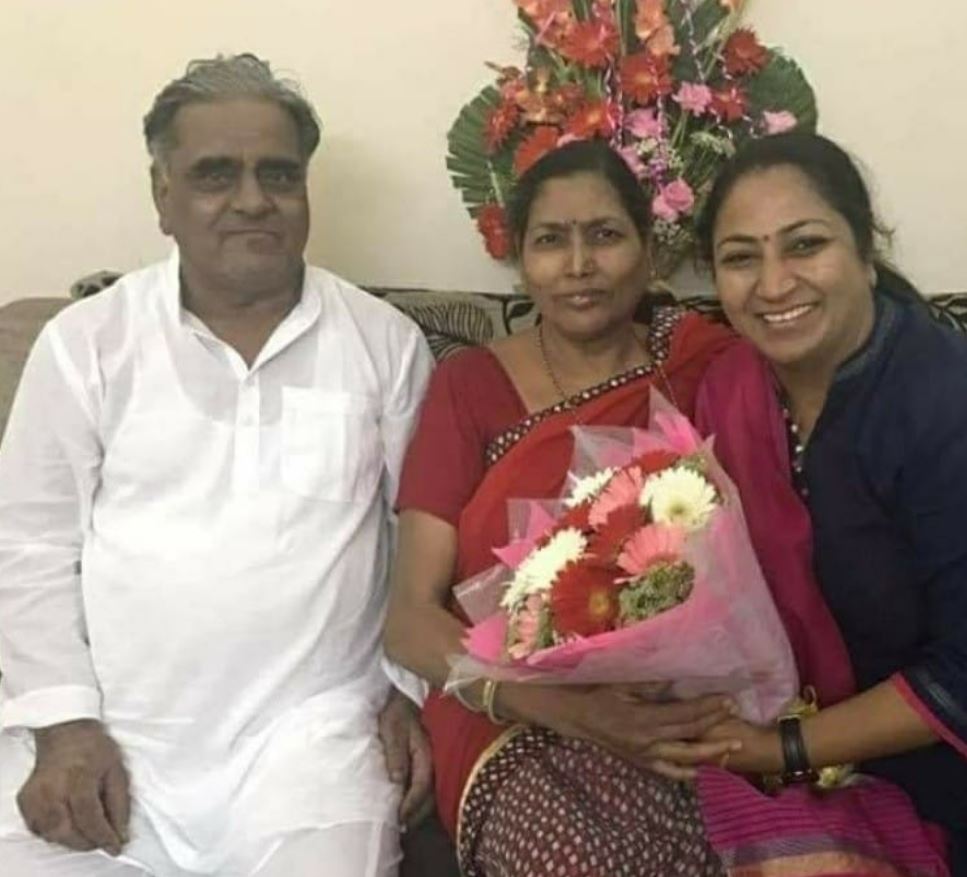Last updated on: February 20, 2025
Rekha Gupta marked a historic event on 20 February 2025 when she became the ninth Chief Minister of Delhi’s National Capital Territory (NCT).
If you have followed Delhi politics closely, Rekha’s appointment stands out: not only as an MLA representing Shalimar Bagh constituency for the first time ever but also as the only fourth woman ever. Her rise from student leader to head of government was truly impressive and represents hope and change. I will take you through Rekha’s early life, education, local politics, electoral success, and what her appointment means for Delhi — all with friendly, easy-read reports!
| Fact | Details |
| Name | Rekha Gupta |
| Date of Birth | 19 July 1974, She is today 51 years and 7 months old |
| Birthplace |
Julana, Haryana, India
|
| Political Party |
Bharatiya Janata Party (BJP)
|
| Constituency |
Shalimar Bagh, Delhi
|
| Position |
9th Chief Minister of Delhi (National Capital Territory)
|
| Assumed Office | 20 February 2025 |
| Education |
BCom from Daulat Ram College, Delhi University; LLB from Chaudhary Charan Singh University
|
| Early Political Involvement |
Active in ABVP and DUSU (served as General Secretary and President)
|
| Previous Roles |
Councillor from North Pitampura; involvement with Municipal Corporation of Delhi (MCD)
|
| Key Election Victory |
Defeated Bandana Kumari (AAP) in the 2025 Delhi Assembly Elections
|
| Personal Life |
Married to Manish Gupta; has two children Nikunj and Harshita
|
Early Life and Background Information
Family Origins and Childhood
Rekha Gupta was born on 19 July 1974 in Julana, Haryana to parents who valued education and community service. At just two years old, her family relocated to Delhi because Jai Bhagwan Jindal had secured employment as branch manager of State Bank of India’s Pitampura branch; it exposed Rekha to an entirely different world while opening up opportunities in public life.
Values and Upbringing
Rekha was raised in a middle-class family and learned early to value hard work and kindness from her mother Urmila Jindal, who dedicated herself to looking out for their needs as she could. These lessons of service helped Rekha become committed to issues like women’s welfare and education; she often lends a helping hand as her roots helped keep her grounded with people’s daily challenges.
Education and Early Political Involvement
Academic Journey
Rekha began her academic journey in Delhi, where she completed school before enrolling at Daulat Ram College under Delhi University to earn a Bachelor of Commerce (BCom) degree with an emphasis in economics and administration. Later she earned an LLB degree from Chaudhary Charan Singh University – truly someone with both practical business knowledge and legal acumen!

Student Politics Involvement
Rekha was active in student politics during college; joining Akhil Bharatiyarthi Parishad (ABVP), the student branch of Rashtriya Swayamsevak Sangh (RSS). By 1995, she had already served as General Secretary and later President of her university’s Students Union (DUSU), showing leadership qualities while making a difference for other students.
Influence of Student Politics
Her time at DUSU was all about addressing student issues–whether that meant better educational facilities or support for female students. This experience taught her how to organize, lead, and listen to people’s concerns – much like working on group projects where everyone’s voice matters–this early phase in her life set the foundation for future political involvement.
Early Political Career and Local Governance
Launching Her Local Political Career
Rekha embarked upon her local political career upon graduating from college. In 2007, she ran for office and won a seat as councilor from North Pitampura in Delhi, focusing on practical improvements such as libraries, parks, and community centers – thus becoming an advocate for improving daily life for local citizens.
Work in the Municipal Corporation
Rekha was also active within the Municipal Corporation of Delhi (MCD), helping improve public infrastructure. Her involvement at this level enabled her to understand real issues such as potholes in streets and the need for improved public spaces; I can only think of her as someone who makes life more pleasant with each little fix she fixes!
Building Her Reputation Within the BJP
Rekha joined the Bharatiya Janata Party (BJP) around 2004. Through her diligent work as both a councilor and then as one of its Mahila Morcha leaders, Rekha quickly earned herself a strong reputation within her community as well as among her party colleagues. In essence, Rekha earned her trust by working hard on the local level while earning respect among her community and fellow party colleagues alike.
Breakthrough in Election and Rise to Notoriety
Electoral Success in 2025
Rekha made her breakthrough during the 2025 Delhi Assembly Elections, in the Shalimar Bagh constituency where she defeated Bandana Kumari of the Aam Aadmi Party (AAP). Rekha’s victory represented more than just victory–it was an indication of people wanting change and rooting for someone promising to address issues that had gone ignored for too long – something Rekha promised during her campaign.
Campaign Strategy and Outreach
Rekha’s campaign strategy and outreach were characterized by clear promises and grassroots energy. She focused on upgrading government schools, improving healthcare delivery systems, and fixing infrastructure issues such as roads and utilities. If you’ve ever participated in an honest community meeting that strives for tangible solutions then Rekha was someone you would recognize immediately – her style was similar! Her message was straightforward: “I know what needs fixing, and I’ll work to get it done.”
First-Time Legislator Credibility
Even though Rekha had never served in local governance before becoming an MLA, her long history gave her the credibility that was required. People saw Rekha not simply as someone new to politics but as someone with plenty of experience ready to tackle Delhi’s unique set of challenges head-on. When you hear of someone being promoted at work, you know they will be up for the challenge because you know they have seen them in action before.
Appointment as Chief Minister
Oath Ceremony and Formation of Government
After winning their election victory, the BJP moved swiftly to form a government. On 20 February 2025 at Ramlila Maidan in Delhi, Rekha Gupta took her oath as Delhi Chief Minister before prominent figures like Prime Minister Narendra Modi, Union Home Minister Amit Shah, and other top leaders took their seats for this historic ceremony. Imagine attending an epic family party where everyone came out in support – this was exactly that momentous occasion!
Being the Fourth Female Chief Minister
Being only the fourth woman ever elected Chief Minister in Delhi is an impressive feat, breaking traditional molds while providing hope and representation for many who have long felt underrepresented. Think of it as opening up opportunities for even more women to lead positions–a truly empowering milestone!
Formation of the Gupta Ministry
Rekha created her Cabinet of the Gupta Ministry after taking office. She formed the 13th Ministry of Delhi with experienced politicians and new faces alike serving in key portfolios such as finance, public works, law, and health. This balanced approach to meeting Delhi’s many challenges effectively is much like when gathering a team for any big project – everyone has an important part they play that must all come together successfully in order for its completion.
Policy Agenda and Governance Priorities
Vision for Delhi
Rekha Gupta envisions Delhi as being a modern, sustainable, and efficient city – not simply as an urban center; she wants it to serve as an example city where development meets quality of life seamlessly. Her approach focuses on tangible improvements that anyone can see or feel for themselves.
Initial Goals for the First 100 Days
Ayushman Bharat Rollout:
She intends to expand this medical insurance scheme so more individuals, particularly the vulnerable, receive quality healthcare.
Yamuna River Rejuvenation:
Rekha intends to initiate initiatives for cleaning up and rejuvenating the Yamuna River, which has long been plagued by pollution.
Sanitation and Waste Management:
One major goal will be to make Delhi an even healthier environment to live in by cleaning up city streets and public spaces, making the city streets and spaces clean again.
Road and Infrastructure Repairs:
With so many roads in need of repair, her team will focus on fixing roads and de-silting drains prior to monsoon season – an invaluable service that many cannot access themselves.
Enhancement of Public Services:
This involves upgrading government schools and hospitals as well as ensuring reliable utility services such as electricity and water.
These goals are practical and directly address issues affecting daily life. Imagine seeing visible improvements made within just months in your own city – that would make a promise that feels both urgent and real!
Long-Term Reforms and Structural Changes
Rekha is working towards long-term reforms and structural changes; beyond her immediate targets, she is planning for long-term changes:
-
Decentralizing Governance:
Strengthening local bodies so decisions can be made closer to home. -
Digital Governance:
Leveraging technology to make government services more transparent and accessible. -
Partnerships Between Public and Private Organizations:
Joining forces with private businesses to enhance infrastructure and upgrade city facilities. -
Environmental Sustainability:
Promoting renewable energy use and decreasing pollution to safeguard Delhi’s future is our main focus.
These changes aim to ensure Delhi remains an efficient city today and in the future.
Personal and Family Developments
Family Background and Values
Rekha Gupta leads an equally fulfilling personal life as her professional journey. She is married to Manish Gupta, a businessman involved with industries like spare parts and insurance; together they have two children–a son Nikunj Gupta, and a daughter Harshita. Rekha’s story goes far beyond politics alone; it encapsulates how to balance family life while making decisions that impact millions.
Financial Transparency
Rekha shared details about her financial assets in her election affidavit, including moveable assets like bank deposits and shares as well as immovable properties in Rohini and Shalimar Bagh. Though Rekha does have liabilities associated with some properties that she owns in Rohini and Shalimar Bagh, her overall net worth indicates she is financially prudent – this transparency has helped build trust amongst members of the public much like when someone opens up to you about their circumstances, making you more comfortable about trusting their decisions.
Commitment to Family
Rekha stands out for her commitment to her family despite her busy schedule, making her relatable for many people who witness how gracefully she handles both professional challenges and personal moments with equal grace – qualities which set her apart as an admirable role model.
Political Ideology and Leadership Style
Ideological Foundations
Rekha was deeply shaped by her early experiences with the ABVP and RSS network, instilling in her a strong sense of nationalism, discipline, and public service. Joining the BJP later was only natural; Rekha always had clear values and political leanings which carried over into her role as Chief Minister.
Leadership Traits
Rekha has an excellent blend of pragmatic and visionary traits in her leadership style, including:
-
Transparency:
She stands for open government and makes sure every action taken by the state government is visible to the public. -
Inclusivity:
Her policies aim to empower all sections of society, particularly women, children, and the underprivileged. -
Decisiveness:
She’s known for making decisive, outspoken decisions–much like an honest friend would. -
Collaboration:
While she holds multiple key portfolios, she works closely with her team to ensure all departments work in unison.
One reason people appreciate Rekha is her uncontroversial public persona. While other politicians become involved in scandals, Rekha stands out for having maintained an upstanding and honest character; this makes them feel that someone truly cares for their constituents.
Benchmark with Previous Delhi Chief Ministers
Historical Context
Delhi has witnessed many iconic leaders over time–from Sheila Dikshit’s long tenure through to Arvind Kejriwal’s energetic leadership style–each contributing something unique. Rekha Gupta’s appointment marks an exciting new era that blends stability with innovative approaches to governance.
Contrasting AAP and Congress Leadership
-
Arvind Kejriwal:
Known for bold anti-corruption measures but often struggled with bureaucracy – Rekha’s extensive local governance experience could help her avoid some of these potential pitfalls. -
Sheila Dikshit:
While widely respected for long-term development, some critics thought her approach lacked energy. Rekha intends to strike a balance between stable governance and proactive reforms.
Expectations for New Leadership
Given the legacy of past leaders, expectations can be high when looking at Rekha as she takes over leadership of local politics. Her people-connecting abilities make up her strong base of support. Rekha brings fresh insight to a role many have held before–giving us hope of positive transformation.
Challenges and Future Outlook
Urban Challenges in Delhi
Delhi is a city with great potential yet also many challenges. Below are a few pressing issues:
-
Environment Degradation:
The Yamuna River has become polluted, and cleaning it up will require considerable efforts. -
Traffic and Infrastructure:
Rapid urban growth means roads and public transport require significant upgrades. -
Public Health and Sanitation:
Serving such a vast population requires providing quality healthcare while upholding cleanliness as an ongoing challenge.
Political and Administrative Hurdles
Rekha faces both political opposition and administrative hurdles when managing Delhi, such as AAP members. Furthermore, she must work tirelessly to reduce bureaucratic delays while making sure all departments work cohesively together.
Vision for Sustainable Development and Balancing Interests
Rekha’s vision for sustainable development is crystal-clear: make Delhi an eco-friendly, digitally empowered, and inclusive city. Her plans involve investing in technology, strengthening public-private partnerships, decentralizing decision-making processes and delegating decision-making authority to the local level – creating a future in which everyday problems can be solved quickly and effectively.
Rekha must balance the expectations of Delhi’s citizens with broader national policies. With the BJP in power at both levels, there’s pressure for policy continuity, yet she appears well-equipped to maintain this delicate balance.
Public Reception and Media Coverage
Media Portrayal
Major media outlets such as Hindustan Times, NDTV, and The Economic Times and international platforms have given Rekha Gupta’s story widespread coverage in both local and international publications. Their reports highlight her grassroots journey and clean record before discussing how best to tackle Delhi’s challenges. Reading these profiles gives an impression that Rekha is not simply another politician, but someone driven to make real change for good in her city.
Social Media and Public Discourse
People on platforms such as Twitter and Facebook have expressed an overwhelming sense of support for Rekha, with hashtags like “Sabko dekha, aa gayi Rekha” trending, showing how her appointment resonated with many people who desire real change. It almost feels as if an entire city were cheering her on–it reminds you of that feeling when someone you care for finally receives their due recognition.
Impact on Women’s Representation
Her rise is particularly encouraging for women. In spite of the challenges associated with leadership roles, her appointment as Chief Minister sends a strong signal about gender equality – something which may lead many more women into politics and help create a more equitable political landscape.
Analysis of Comparable Leaders
Domestic Comparisons
Rekha has often been compared to other prominent female leaders in India. While figures like Mamata Banerjee and Sushma Swaraj are used as benchmarks, Rekha stands out as she built her career from scratch; unlike some politicians who inherit their positions. Rekha’s success stands as a testament to hard work and vision.
International Perspectives
Today’s leaders increasingly combine grassroots experience with modern administrative skills. Many see her as the kind of leader you might see leading in a progressive city abroad–someone who understands local issues while using modern practices to address them. Her global perspective adds an interesting twist to her role.
The Gupta Ministry: Structure and Key Portfolios
Cabinet Formation and Portfolio Assignments
Rekha quickly formed her cabinet upon taking office; today it stands as Delhi’s 13th Cabinet with seven ministers assigned specific responsibilities:
-
Finance and Revenue:
Rekha is responsible for overseeing both of these important areas, ensuring fiscal discipline and transparency. -
Public Works and Urban Development:
Ministers in this group cover everything from road repair to sanitation services. -
Law and Justice:
With Kapil Mishra at the helm, Delhi’s legal system should run efficiently. -
Health and Transport:
Dr. Pankaj Kumar Singh has made it his priority to advance healthcare and transport systems–two areas vital in today’s post-pandemic world. -
Industries and Environment:
Overseen by Manjinder Singh Sirsa, his responsibility is to balance industrial growth with environmental protection.
Strategic Importance of Portfolio Allocation
Each portfolio is assigned with an explicit purpose in mind. Like forming a dream team, every portfolio member plays their part in addressing all aspects of Delhi’s challenges in an organized fashion, increasing the chances that ambitious targets can be met.
Future Prospects and Challenges
Rekha’s Immediate Priorities
Over the next 100 days, Rekha aims to expand Ayushman Bharat healthcare coverage, clean up the Yamuna River, improve sanitation, fix roads, and upgrade public services. Imagine noticing cleaner streets and smoother roads on your daily commute—that’s the kind of change she promises.
Long-Term Reforms
Rekha has plans in the works that look beyond quick wins:
- Strengthening Local Governance: Giving local bodies greater power so decisions are made closer to people.
- Digital Transformation: Converting government services online and increasing efficiency.
- Sustainable Urban Development: Utilizing green technologies and minimizing pollution.
- Education and Skill Development: Revamping schools and initiating training programs designed to equip the youth for tomorrow’s challenges.
Potential Roadblocks and Actionable Plan for Success
Unfortunately, Rekha faces numerous roadblocks on her journey as mayor of Delhi. These range from political opposition from AAP members and bureaucratic challenges to delays and setbacks caused by running such a vast city like Delhi; yet her experience in local governance gives hope that she can successfully address these obstacles.
For her vision to succeed, a clear plan is essential. This should include elements like:
- Short-Term Action Plans (STAPs): Setting clear milestones with regular progress updates.
- Long-Term Vision Documents: Outlining medium- and long-term goals for infrastructure, environment, and digital governance.
- Stakeholder Engagement: Regular consultations with experts, community leaders, and citizens to ensure policies meet real needs.
Conclusion
Rekha Gupta’s journey from small-town girl in Haryana to the Chief Minister of Delhi is truly inspirational, serving as an exemplar of how hard work, dedication and a commitment to public service can be powerful agents of transformation. Following her story gives you hope for a future where Delhi becomes a model city–one with modern technologies combined with compassionate governance practices.
Rekha’s leadership goes beyond creating policies; she connects with people on an intimate level. Watching Rekha step into roles she had always desired reminds me of watching a friend step into roles they have dreamed about with care and dedication – Rekha is proof of this fact with tangible goals like cleaning the Yamuna River and fixing roads demonstrating her willingness to put this vision into action.
Rekha Gupta stands up as an inspirational figure to young women aspiring to enter politics by setting new standards of transparency and efficiency; her journey serves as a beacon of hope to many aspiring politicians looking for inspiration. Not only has she helped transform Delhi’s political landscape but she is also helping shape a new generation of leaders.
Rekha Gupta’s journey is like watching an unfolding success story; every step represents a promise of a brighter future for the city we all love.

